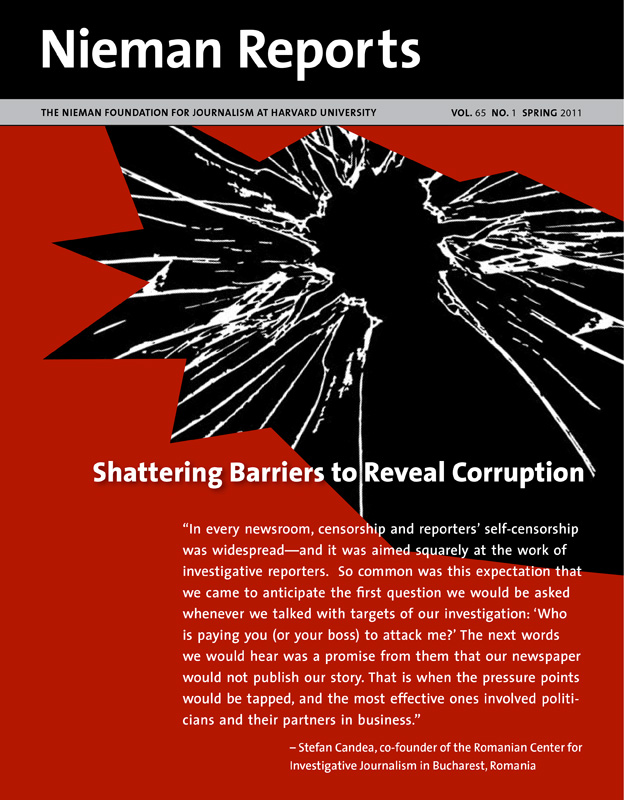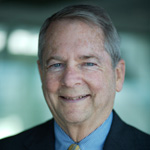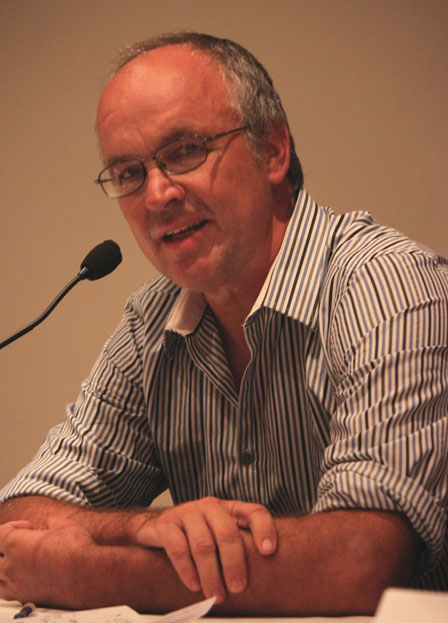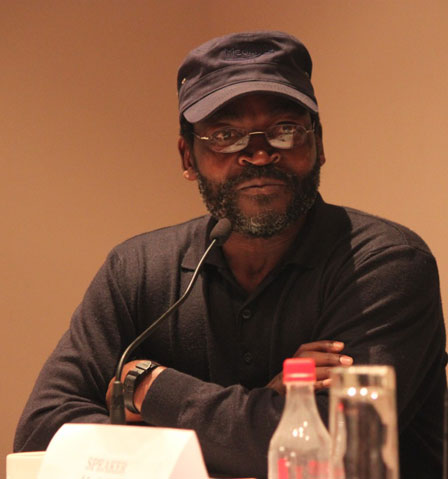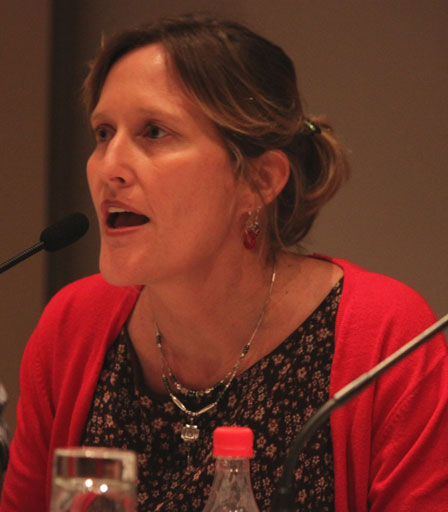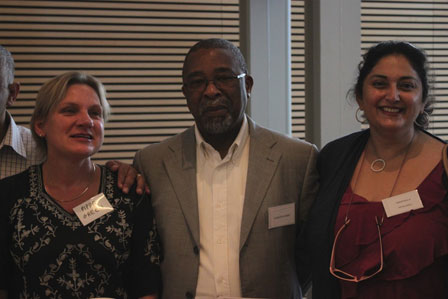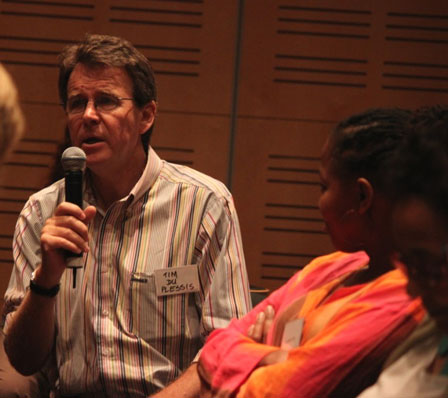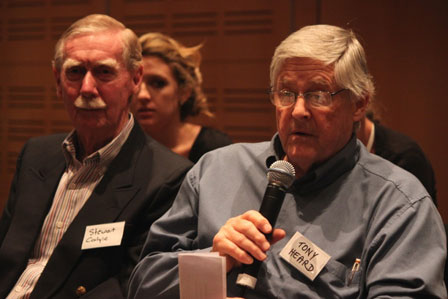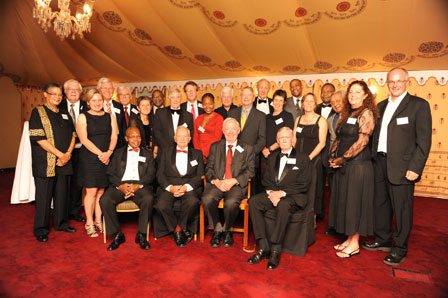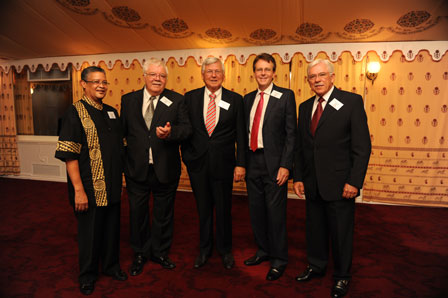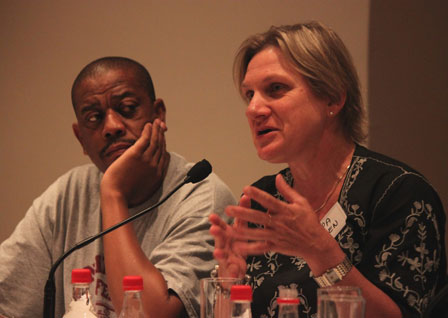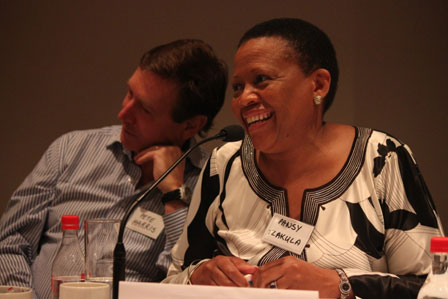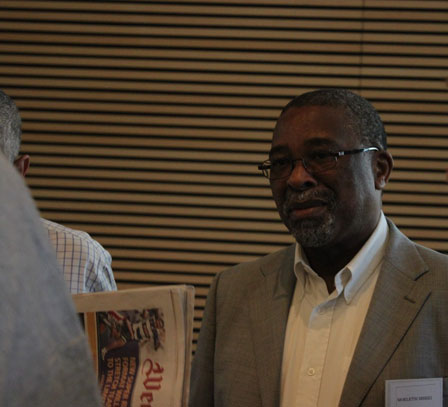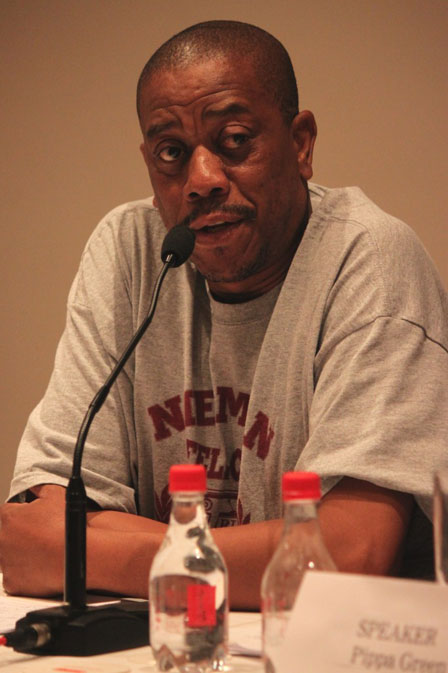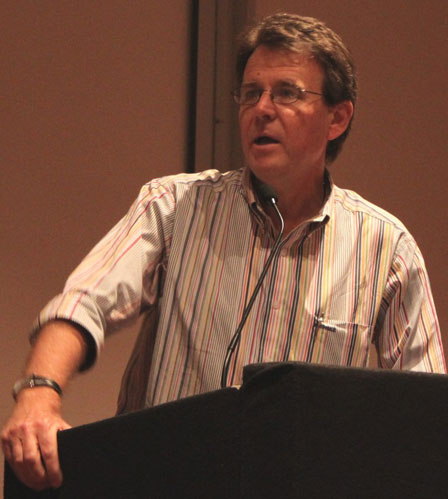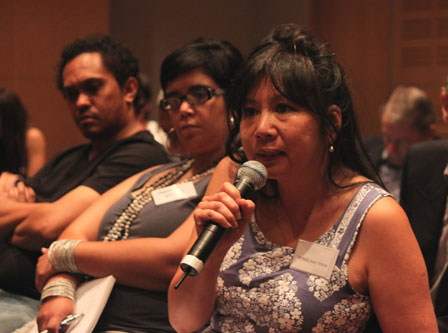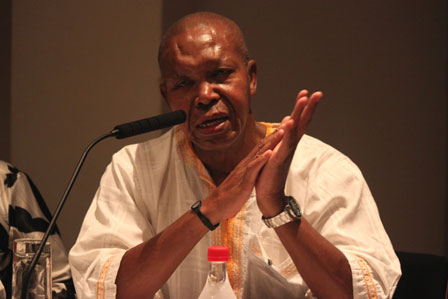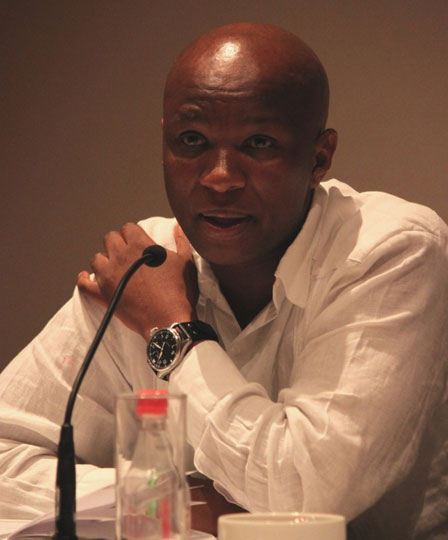Fifty years ago, two journalists from South Africa were in the final weeks of their Nieman fellowship year. The two—Aubrey Sussens, the white editor of The Rand Daily Mail, and Lewis Nkosi, from a young generation of black writers giving voice to the yearning for freedom—were the first South African journalists in the Nieman program.
Their journey to Cambridge in the fall of 1960 began a remarkable tradition that has linked journalists in the United States and South Africa ever since. This partnership was celebrated recently during a festive dinner at the elegant Mount Nelson Hotel in Cape Town. It was an evening for reminiscences and an opportunity for me to offer a toast celebrating our common purpose in fostering journalistic excellence and anticipating another 50 years of South African Nieman Fellows.
This cooperative undertaking began to form in 1958 through the United States-South African Leader Exchange Program. Representatives of religious, philanthropic, educational and cultural organizations from both countries laid out a mission to build a “bridge of understanding and cooperation by means of private, nongovernmental efforts.” In both countries, the founders stated, “lack of accurate information and often-sensational news reporting” has hampered progress in developing a genuine understanding of each other’s problems and solving them.
In 1960, racial injustice was also very much on the mind of Louis Lyons, curator of the Nieman Foundation. During the late 1950’s, he had begun to seek out journalists from the American South who would use their year at Harvard to sharpen their knowledge and insight for their reporting and commentary on the American civil rights movement. Lyons saw the fellowships for South African journalists, especially black Africans, in the same light—as a way for reporters and editors to prepare for their journalistic roles in the long struggle to end apartheid.
As the number of South African Nieman alumni grew, they worked to remove the racial barrier that had confronted Nkosi and Nat Nakasa, who was the second black South African fellow four years later. In time, they organized as the Nieman Society of Southern Africa, which vets candidates and established a steady rhythm of black and white journalists being sent to Cambridge. In all, 56 South African fellows have come to Harvard—by far the largest contingent of Niemans from a single foreign country.
The anniversary weekend resonated with good fellowship and deeply felt expressions of appreciation for what the Nieman experience has meant to the generations of South African Nieman Fellows. It was inspiring to meet journalists whose reporting and commentary became a powerful force in the struggle to end apartheid and whose authoritative voices continue to be heard.
Joe Thloloe, NF ’89, was a labor reporter who refused to compromise his principles and was banned by the white government. He is now press ombudsman for the Press Council of South Africa. It is a critical role as the press tries to roll back an effort by the ruling party to limit the freedom of expression so admirably guaranteed in the new Constitution.
Allister Sparks, NF ’63, was editor of The Rand Daily Mail when it disclosed secret government plans to fund a propaganda campaign in support of apartheid. Later on, the owners who wanted to make the paper appeal more to affluent whites and less to poorer blacks fired him. He became well-known to American audiences as South African correspondent for The Washington Post and author of several perceptive books about the apartheid era.
Ton Vosloo, NF ’71, recalled that he arrived at Harvard as a strong supporter of apartheid and, over the year, learned a “change of mind.” He rose to become one of South Africa’s most progressive media executives whose companies have provided critical financial support for the South African Nieman Fellowship program.
Mathatha Tsedu, NF ’97, wrote provocative stories about the South African political scene, which led the government to ban him from journalism for five years beginning in 1981. He later became editor of the Sunday Times.
These are among the Nieman Fellows whose courage as journalists helped bring hard-won freedoms to South Africa and its press. The community of journalists in South Africa is small and closely knit and, on this occasion, it was clear that the elder Nieman Fellows among them are revered as true heroes of the struggle for freedom.
There is now a new generation of women and men, especially from Nieman classes beginning in the early 1990’s, who hold top editing positions or are building audiences themselves, and they find the voices of their elders worth reading or listening to across South Africa.
Amid hugs and warm handshakes, many told me how meaningful it is to have this strong bond with the Nieman Foundation. Others spoke with feeling about how their intellectual growth at Harvard and their lasting connections with Nieman classmates had transformed their lives.


